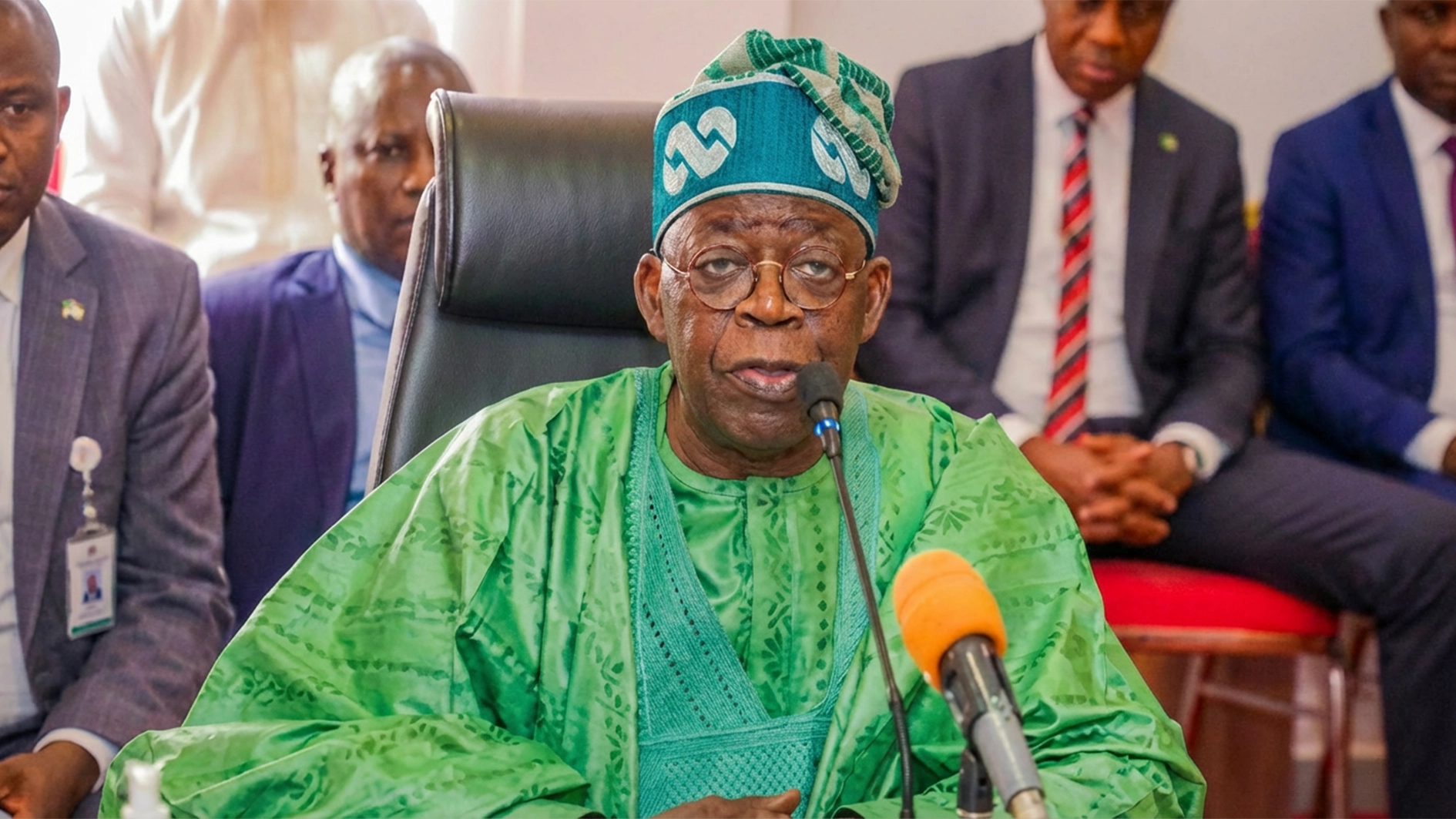• Out-of-school children’s crisis may worsen over withdrawal, expert cautions
• How move exposes over-reliance on foreign aid, by consultant
• Nobody will develop Nigeria but Nigerians, says CSJ Lead Director
• ‘Nigeria must cover funding shortfall to shield education from exit impact’
• Odewumi: Withdrawal opens door for China, BRICS to expand global influence
There are fresh concerns over the planned withdrawal of the United States from the United Nations Educational, Scientific and Cultural Organisation (UNESCO), as stakeholders warn that the move would have significant implications for Nigeria, particularly in education, infrastructure development, and the realisation of the Sustainable Development Goals (SDGs).
The decision is part of President Donald Trump’s second-term effort to withdraw the U.S. from several global organisations. These include leaving the World Health Organisation (WHO), halting funding to the Palestinian relief agency UNRWA, and withdrawing from the UN Human Rights Council, all as part of a broader review of the United States’ engagement with UN agencies.
For years, Nigeria has relied heavily on foreign assistance to fund development projects across critical sectors such as education and health. The withdrawal, expected to take effect in December 2026, is likely to affect UNESCO’s work on education, culture, and combating hate speech.
Although the U.S. contributes about eight per cent of UNESCO’s total budget, making the financial blow less severe than for other international organisations, stakeholders have described the move as a setback for Nigeria and other African nations. UNESCO currently runs major programmes in cultural promotion and education, including efforts to foster intercultural dialogue.
The U.S. was a founding member of UNESCO in 1945, but this would mark the third time it has withdrawn from the body. It first pulled out in 1983 under President Ronald Reagan, citing what his administration described as anti-Western bias. The U.S. rejoined in 2003 under President George W. Bush, only to withdraw again in 2017 during President Trump’s first term. His administration cited “mounting arrears, the need for fundamental reform in the organisation, and continuing anti-Israel bias” as reasons for the move.
The U.S. returned to UNESCO in 2023 under President Joe Biden, who argued that rejoining was essential to counter “Chinese influence.” As a condition for re-admission, the U.S. agreed to pay approximately $619 million in unpaid dues and to contribute to programmes supporting educational access initiatives in Africa, Holocaust remembrance, and journalists’ safety.
The Barack Obama administration had earlier cut contributions to UNESCO, resulting in the accumulation of substantial arrears. Although UNESCO’s Director-General, Audrey Azoulay, stated that the latest withdrawal was anticipated and that the agency had prepared for it, stakeholders described the move as a major blow to Nigeria.
Former Nigeria’s Permanent Delegate to UNESCO and President of the General Conference of UNESCO, Prof Michael Omolewa, described the decision as “pathetic”, saying: “This is the period that the world needs the services, division and the mission of UNESCO in ensuring that there is equitable distribution of resources to meet the needs of all the nations in spite of their varying levels of resources.”
Omolewa further noted: “There is a crisis everywhere, and therefore, the need for peace, reconciliation and harmonious relationships among people, states, and nations. That is why UNESCO is interested in those critical areas of education, science, technology, cultural information and related areas of performance. Now, if and when the United States leaves, you can be sure that Israel will automatically join, and it is possible that some states that are equally committed to the U.S. goals and new vision may decide to follow. That would be a further weakening of the financial capability of UNESCO.”
To cushion the impact of America’s exit, Omolewa advised that the Federal Government must find additional subsidies to cover any funding shortfall.
The foremost historian stressed that Nigeria should not allow the U.S. withdrawal to negatively affect its educational programmes and other vital UNESCO initiatives.
In the same vein, education consultant Dr Toyin Sam-Emehelu said the development was a wake-up call for Nigeria, stressing the need to confront its challenges head-on. She said, “One of the things I’ve always advocated for is that you can’t expect people to leave their priorities at the expense of serving you, especially when you don’t have value in exchange.” Sam-Emehelu noted that the move would affect many aspects of education and the cultural dimension of building the country’s economy.
“What I would also want to say is that, over the years, even though we get a lot of reports, updates about all of these things, we are yet to see the effect of them being a part of UNESCO and granting Nigeria funds. We are nowhere compared to global best practices, but to a large extent, if not for the private sector, education in Nigeria was not, in fact, nowhere to be found,” she lamented.
While calling on the government to rise to the challenge, the seasoned educationist regretted that successive administrations had done little to transform the next generation.
“Let’s start from the budget. It’s one thing for us to have a budget that is robust in the first place, it’s another thing to be able to ensure, monitor, and measure the impact of the budget on education.” Sam-Emehelu pointed out that as long as politics and lip service continued to dominate the sector, vital areas would remain affected.
“There’s a saying that no nation can be greater than the quality of its teachers. We are still talking of a budget that is as low as 7.3 per cent, which is primarily centred on infrastructural development and personnel costs. We can’t even talk about inclusion, we can’t even look into special education needs, access, or quality,” she stated.
Sam-Emehelu reminded that UNESCO, as an organisation, recommends a budgetary allocation of between 15 and 20 per cent to education. She urged governments at all levels to prioritise education to help Nigeria cushion the effects of America’s withdrawal.
Reacting, Lead Director of the Centre for Social Justice, Eze Onyekpere, said the U.S. decision was not surprising, noting that it aligned with President Trump’s “America First” agenda.
The legal practitioner also recalled that the Trump administration had previously withdrawn support from the World Health Organisation and the United States Agency for International Development (USAID).
According to Onyekpere, the development was not just a wake-up call but a reminder that Nigeria must begin to take responsibility for its development.
He said, “It’s not about what it means for Nigeria. The important thing is that the U.S. has taken its decision as a sovereign nation. The resources they were committing were their resources.
It will mean a final drop in the resources available for developmental aid. And the message is clear: nobody is going to develop Nigeria but Nigerians. And there is no way you can develop if you are ruled by your fifth or tenth 11. You must put your best 11 in charge of governance, not just those who want to grab power. And if you don’t put them there, we will continue running in circles.”
For his part, James Nnanyelugo, Chief Operations Officer (COO) of Educare, stated that although the U.S. withdrawal may affect funding, UNESCO’s diversified donor base since 2018 could help mitigate the impact, with possible increased support from the European Union (EU), China, or private foundations.
Also speaking, Michael Adaramoye, National Mobilisation Officer of the Education Rights Campaign (ERC), said: “The withdrawal of the U.S. from UNESCO exposes the hypocrisy of the American government and other imperialist powers who have always positioned themselves as being ostensibly interested in the development of Africa and other third-world nations.” He said this was why governments at all levels must not neglect the education sector and other social services provided by the Nigerian state.
The ERC leader stressed that it was time for the government and other stakeholders to end their over-reliance on foreign support. Similarly, Professor Samuel Odewumi, of the Department of Transport at Lagos State University (LASU), said stakeholders should view the U.S. withdrawal as both a strategic recalibration and a potential disruption.
According to him, the decision signals a shift in U.S. foreign policy toward unilateralism and national interest-driven engagement, moving away from cooperative global platforms —a hallmark of Trump’s outlook.
Odewumi added that, on the other hand, the move creates uncertainty around funding stability, political support, and continuity of programmes, especially for UNESCO-dependent initiatives worldwide.
“My immediate reaction is that it is a continuation of the shrinking of America. It is making the U.S. smaller and less relevant. Its soft powers are continuously getting clipped, and the world is certainly moving on without the U.S. It is a pity. It is creating an expansion space for China, Russia and Europe, especially Germany. BRICS will start growing and South-South trade will blossom,” he said.
The professor, however, noted that the development would have both immediate and long-term effects. According to him, Nigeria may experience disruptions in UNESCO-supported programmes in education, culture, and heritage, especially those co-funded or backed by U.S. contributions.
He also observed that the U.S. withdrawal might embolden other countries to assert more influence, possibly shifting the ideological orientation of UNESCO’s programmes.
In the long run, Odewumi argued that Nigeria and other member states could be called upon to fill the resulting funding gap, which may strain national budgets.
He said Nigeria might also have to reconsider its alignment with UNESCO’s priorities, particularly if new power blocs or ideological directions shape future programming.
Odewumi stressed the importance of Nigeria diversifying its funding sources and entering into alternative partnerships, including South-South cooperation and collaboration with the local private sector.
He called for the strengthening of domestic institutions and urged Nigeria to develop a coherent foreign policy strategy. “Nigeria must craft a coherent foreign policy that balances multilateral commitments with national interests, learning from the U.S. emphasis on aligning international participation with domestic priorities,” he said.
Odewumi added that Nigeria should deepen its engagement in global institutions to shape policies and decisions that reflect African perspectives, especially when major powers disengage.
Acting Dean of the School of Library, Archival and Information Science at Lagos State University, Prof Emmanuel Adebayo, said the United States’ withdrawal from UNESCO should not cause Nigeria undue concern. He said the U.S., a founding member of the organisation, had previously withdrawn in 1984, rejoined later, left again in 2017, and rejoined in 2023.
Adebayo pointed out that the U.S. was not even UNESCO’s largest donor, and therefore was not more committed than other nations. Education consultant Julius Opara said the development could lead to a shift in global education leadership, with countries like China stepping up to fill the vacuum.
He said once the U.S. withdraws its funding support, it is certain the move would create a gap, possibly resulting in funding cuts for UNESCO programmes.
“Currently, Nigeria has a high number of out-of-school children, and UNESCO is part of the efforts to reduce that figure. If the U.S. withdraws, there may be cancellations of some of these programmes in Nigeria because of the constraints the withdrawal will place on that body,” he said.
He added that the move would also weaken UNESCO’s capacity to generate education-related data that Nigeria uses for planning. Opara urged the Nigerian government to give the education sector its full attention, lamenting the continued lip service paid to it.
The consultant said policymakers should rise to their responsibilities, emphasising that Nigeria should not depend on UNESCO’s support to provide quality education for its citizens.






